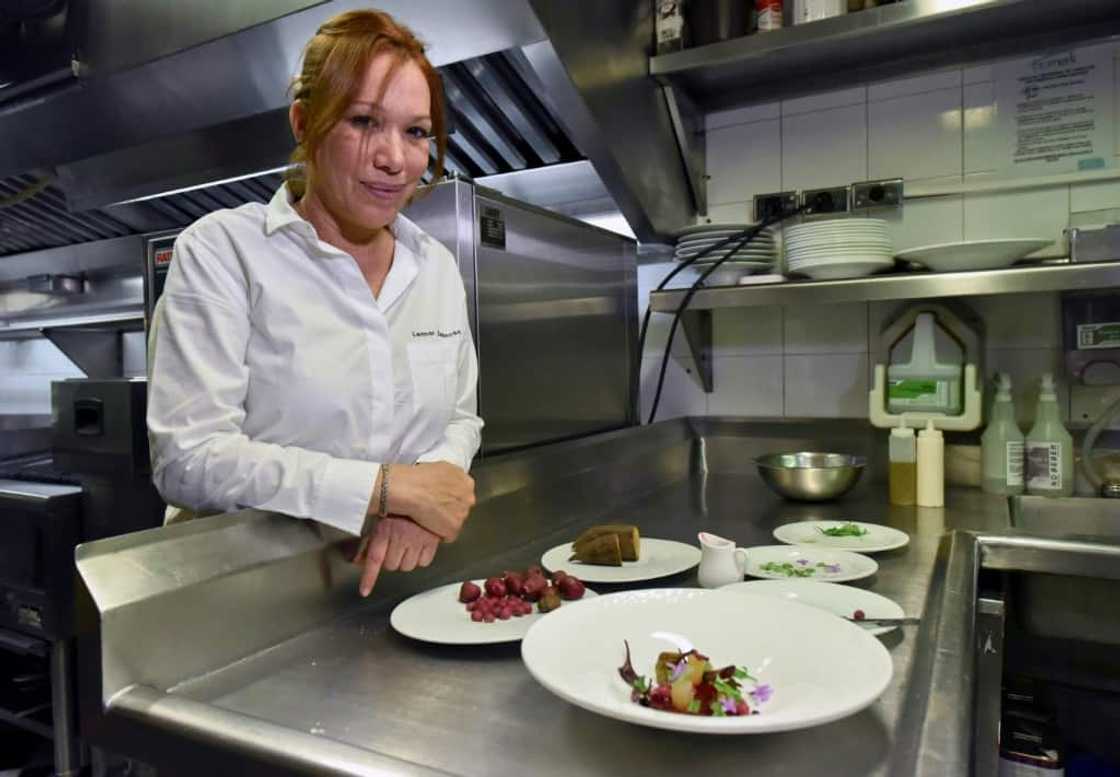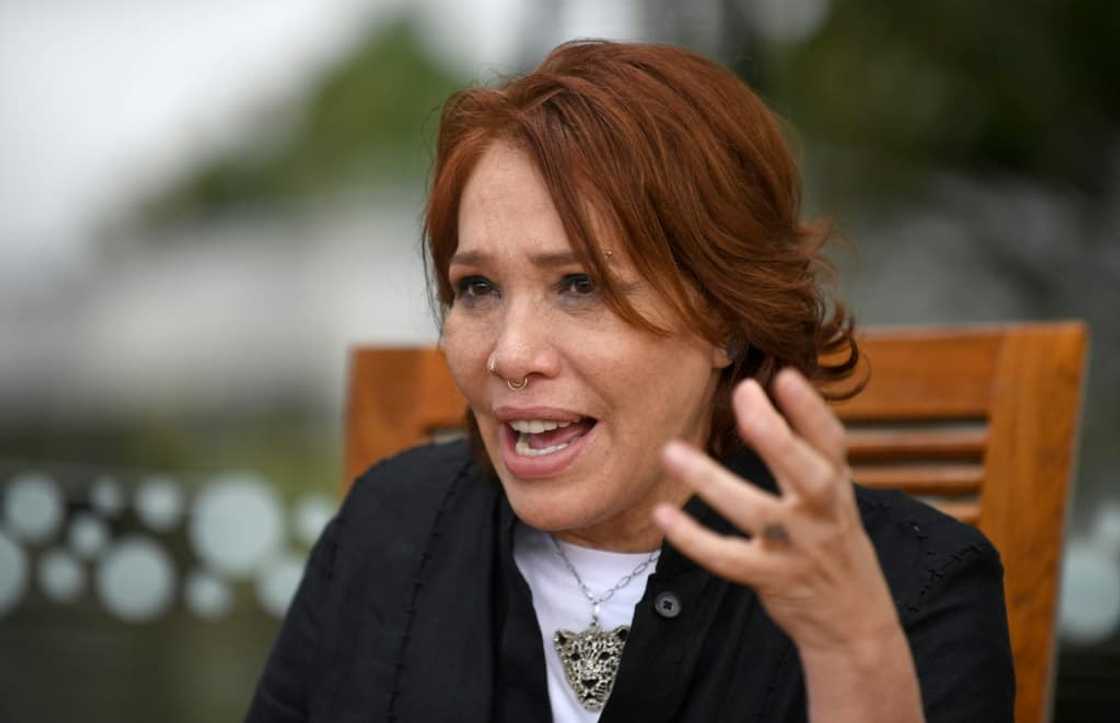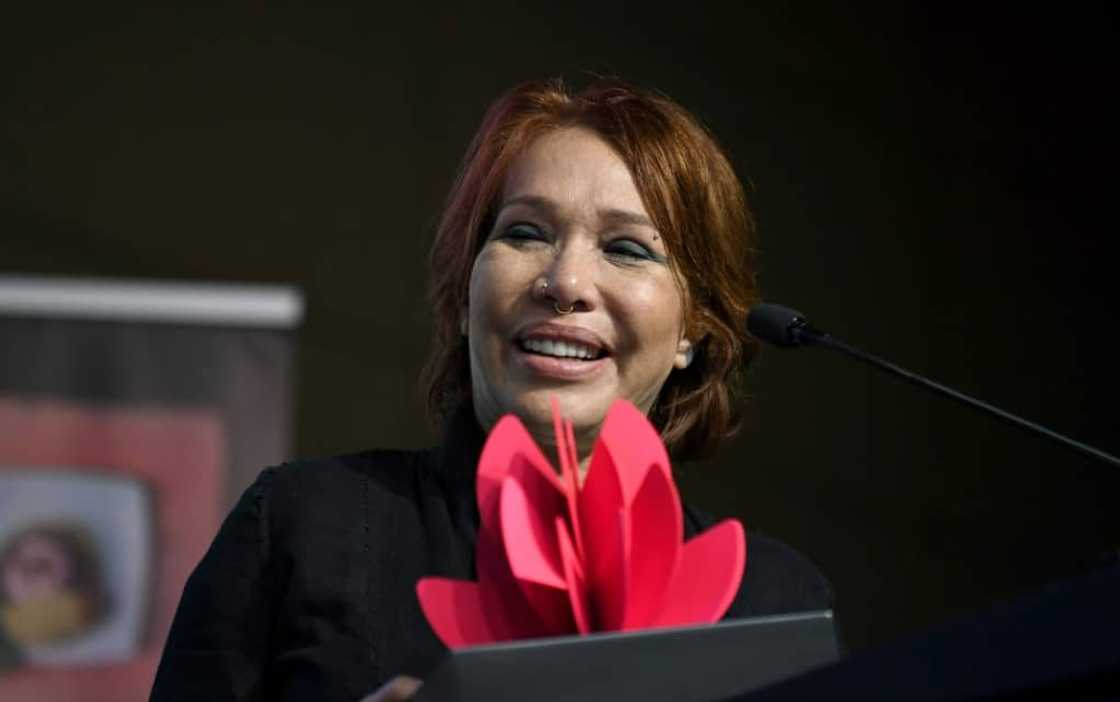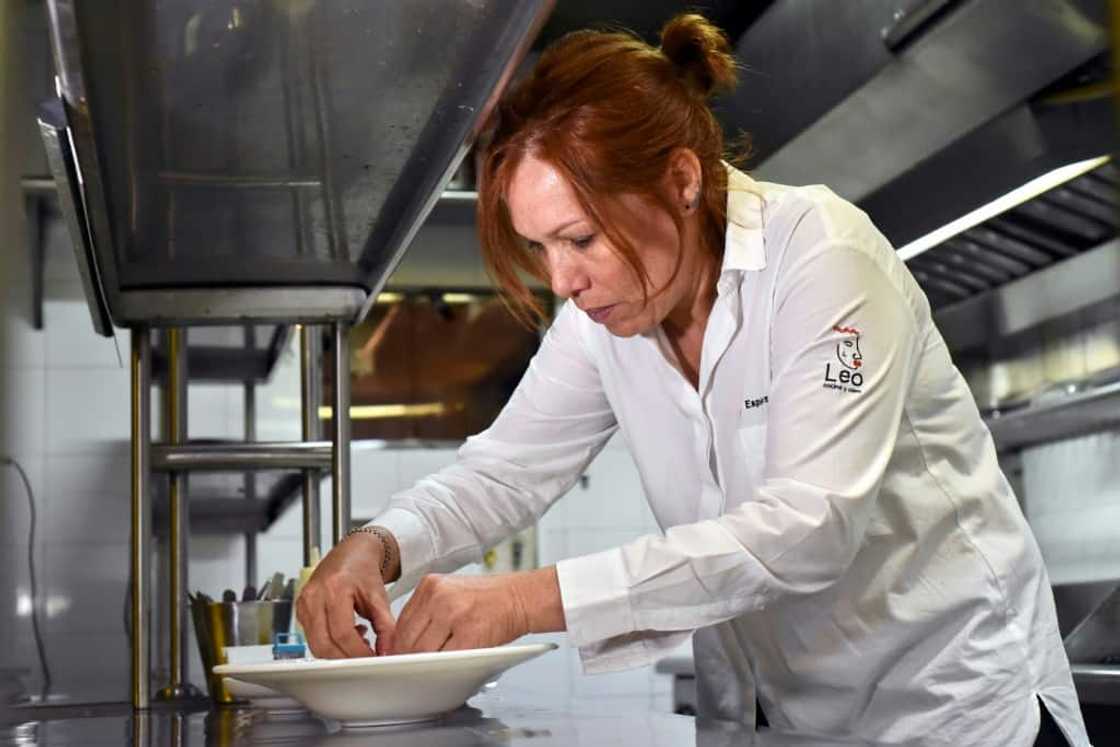Leonor Espinosa: Celebrated Colombian chef with a taste for social change

Source: AFP
New feature: Check out news exactly for YOU ➡️ find “Recommended for you” block and enjoy!
From its jungles to its deserts: the world's newly-minted best female chef, Leonor Espinosa, draws her inspiration from Colombia's vast biodiversity, painful history and oft-neglected traditional communities.
She is not only a cook but also an activist, having travelled to all corners of her motherland to study indigenous cuisine and give a voice to people who feel abandoned in areas blighted by poverty and decades of violence.
"My cuisine tastes of relegated cultures, of forgotten regions, it tastes of ancestral techniques, of smoke... of pain," the 59-year-old told AFP in Bogota after she was voted World's Best Female Chef 2022 by the panel that elects The World's 50 Best Restaurants.

Source: AFP
"It also tastes of joy, of plantain, of cassava, of the soil after it rains, of a desert ecosystem. There is a lot of poetry in my kitchen."
PAY ATTENTION: Follow us on Instagram - get the most important news directly in your favourite app!
In naming Espinosa its winner, the 50 Best panel described her as a "multi-talented Colombian chef marrying art, politics and gastronomy."
At her restaurant Leo in central Bogota, it added, "she has forged a unique, cerebral and profound cooking style that sets her apart from her contemporaries, at the same time as she seeks to use gastronomy as a tool of socio-economic development."
Self-taught
Born in Cartago in the country's southwest, Espinosa grew up in Cartagena on the Caribbean coast and taught herself to cook.

Source: AFP
She studied economics and arts and worked in advertising before making the leap to the kitchen at the age of 35.
In 2017, she was anointed Latin America's best female chef.
To give her restaurant its trademark native- and peasant-infused menu, she has criss-crossed Colombia to document its culinary history.
She has incorporated many traditional ingredients into her repertoire -- everything from exotic fruits and Andean tubers to ants and larvae, traditions taken from the bush and served to five-star palates in the city.
Espinosa's exploration and upliftment agenda has often taken her to parts of the country deeply marred by Colombia's nearly 60-year civil conflict.
Much of this work is done with her Funleo foundation, created in 2008 and awarded the Basque Culinary World Prize nine years later for promoting the gastronomic traditions of indigenous and afro-Colombian communities.
"The award shines a light on those communities that for years have struggled to be recognized for their ancestral value and contribution to national cultural identity," Espinosa said at the time.
"It is a way of mitigating the silence generated by the armed conflict, injustice and exclusion."
With her nose rings and shy smile, Espinosa told AFP that any cook worth their salt is also an anthropologist, political scientist and artist.

Source: AFP
If the chef is a woman, they must also be thick-skinned and tenacious.
While women have traditionally been in charge of food in Colombia, the world of haute cuisine has always been a male dominion, said Espinosa of the hurdles she experienced.
But she was not easily put off.
"I was quite clear from childhood that I will not be what other people want me to be," she told AFP.
"I am who I am... I am rebellious, irreverent, curious."
New feature: check out news exactly for YOU ➡️ find "Recommended for you" block and enjoy!
Source: AFP




